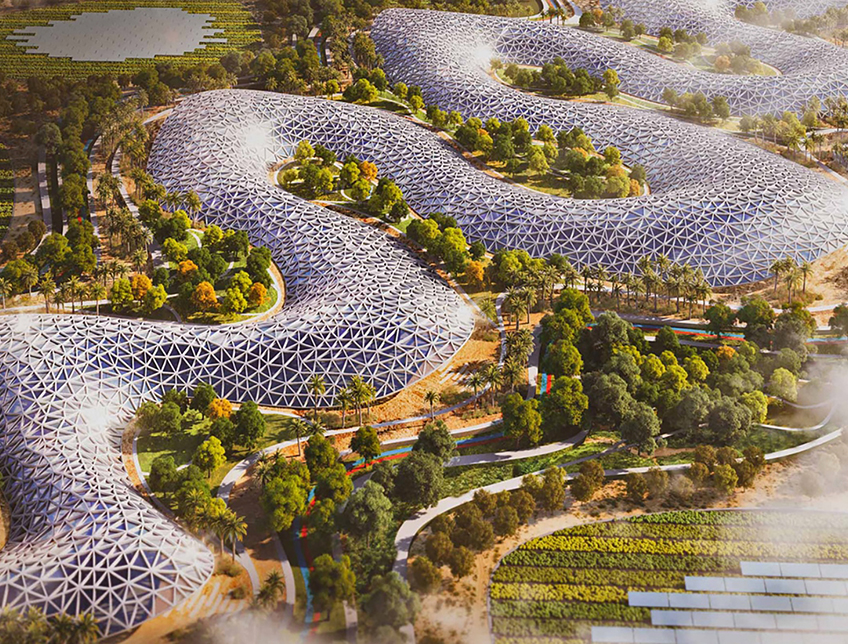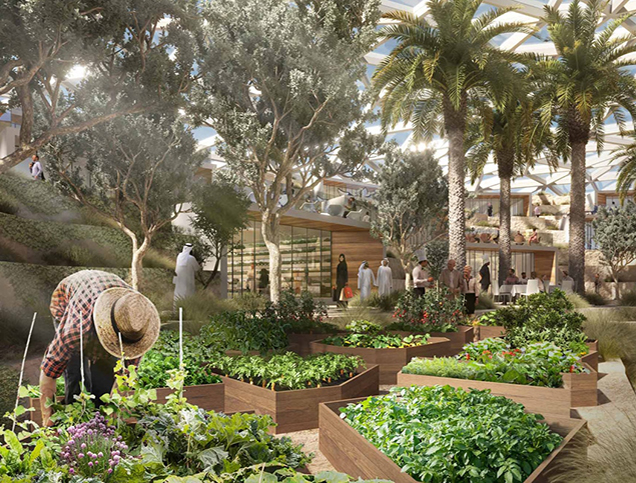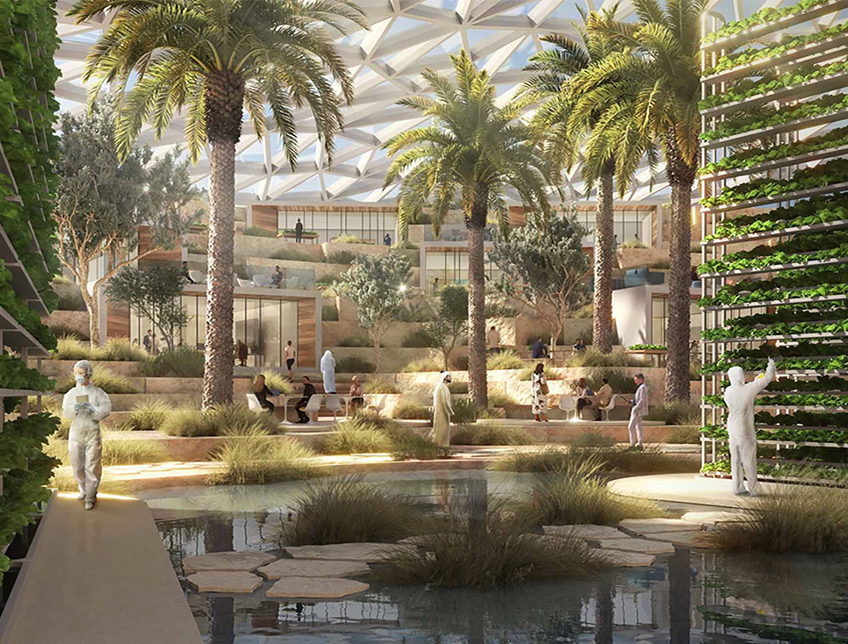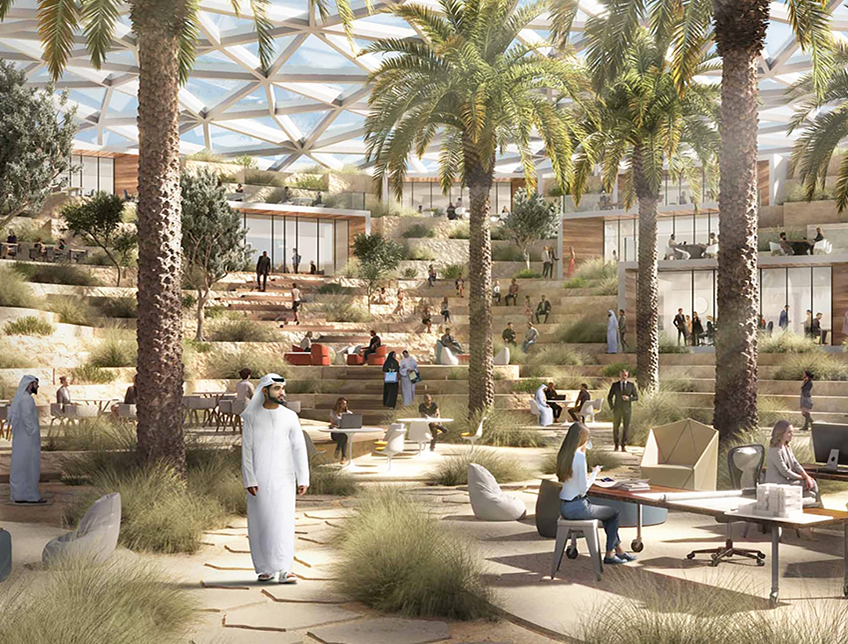
Close

Approach Words: Diverse Economy, Smart City, Sustainability
Public Policy Instruments: Financial Mechanism, Planning, Regulatory
Dubai Agri Hub is an urban farm project that combines eco-friendly dining, retail, entertainment, and educational opportunities with farmers’ markets in a single location,1 2 all fully powered by renewable energy. Key objectives of the Agri Hub project include providing an agricultural tourism experience in the countryside, promoting better health, well-being, and prosperity for rural local inhabitants, fostering a green economy by creating over 10,000 jobs and becoming a key agritourist destination in Dubai’s countryside.3 As such, the project serves two primary purposes:

Title: Agri Hub Dubai Aerial Rendering.
Source: Click Here

Title: 3D illustration showing indoor urban agriculture.
Source: Click Here

Title: 3D illustration showing the Agri-Tech Institute for Research and Innovation.
Source: Click Here

Title: 3D illustration showing the Mix-use Hub.
Source: Click Here
To achieve its goals, the Agri Hub project integrates urban agriculture, green infrastructure, smart technologies, and touristic services to promote regional agricultural tourism.8
The project’s typology features indoor buildings with an atrium and outdoor green spaces. Key components of the hub include a nature and heritage conservation center, an ecotourism center, an Agri-Tech institute, and a restorative wellness center. The project also incorporates spaces for local farmers to sell products directly and supply food to various food and beverage outlets, as well as eco-friendly shopping and leisure areas. Additionally, the hub offers a unique outdoor landscape for farming, camping, and lodging, among other entertainment activities.
Regarding energy and waste, the project employs a zero-waste management program and targets net zero emissions. It includes onsite renewable solar farms to offset energy demand, implements 100% water recycling, and utilizes bio-saline agriculture techniques. Additionally, the atriums are designed to be energy-efficient, employing evaporative cooling systems that use 100% fresh air to maintain comfortable temperatures.9
The project also includes smart infrastructure features such as automated indoor lighting and temperature adjustment based on occupancy, time of day, and exterior weather and light conditions. The hub also utilizes embedded sensors for motion, temperature, noise, moisture, fire, and smoke detection to provide real-time data to improve operational efficiency, safety, and security.

Owner/Developer

Consultant/Designer
The hub’s mobility plan includes green transit systems such as direct bus services with electric buggy tracks from major stations to enhance connectivity to the center,10 in addition to 20 kilometers of dedicated cycling tracks.
The project will allow local farmers access to advanced technologies and expanded markets, enhancing their productivity and profitability.11 Residents will benefit from convenient access to facilities and fresh products, improving the overall quality of life,12 while businesses investing in agriculture and technology will find opportunities for growth and innovation, fostering their economic development.13 Additionally, the building typology of the hub provides visitors and tourists, with a unique agritourism experience through in and outdoor activities such as farm tours, pick-your-own activities, farm stays, and cooking classes.14
The project was initiated by URB, a global leader headquartered in Dubai, and specializes in sustainable city development.15 With a total cost of 70.6 million dollars,16 the construction of Agri Hub Dubai is set to begin in 2025 in an area in Dubai’s desert, and the launch is scheduled for 2030.17
Project Link
https://urb.ae/projects/agrihub/
Endnotes
References